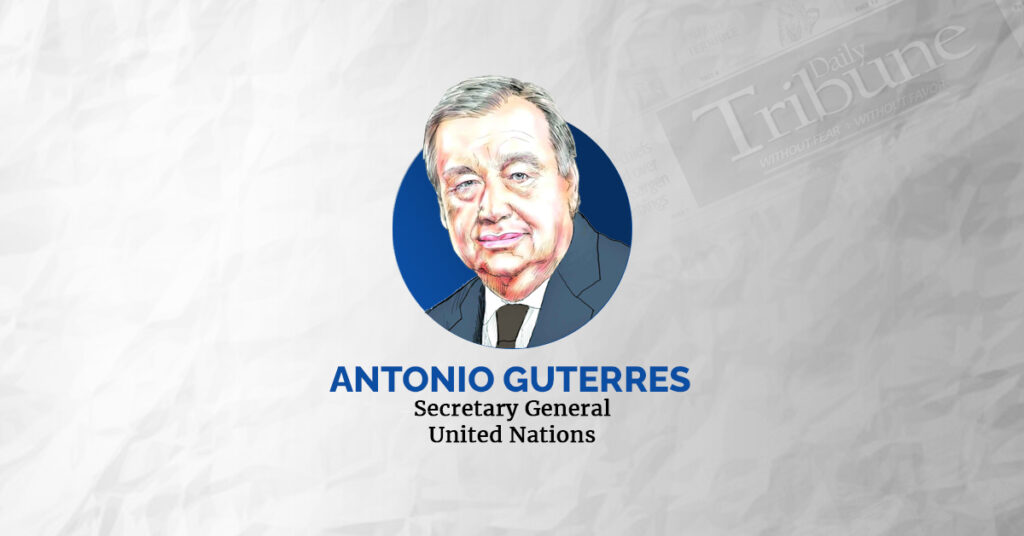Often invisible but always insidious, transnational organized crime is a vicious threat to peace, security and sustainable development wherever it operates.
And it operates everywhere — in all countries, rich and poor, North and South, developed and developing. Meanwhile, cyberspace is a virtual El Dorado for criminals.
The activities of transnational organized crime take many forms, but the ramifications are the same: weakened governance, corruption and lawlessness, open violence, death and destruction.
Illicit financial flows are not abstract figures. They amount to billions of missed development opportunities, lost livelihoods and worsened poverty. On the African continent alone, more money is lost due to tax evasion, money laundering and illicit financial flows than comes in through official development assistance.
Human trafficking — a heinous violation of fundamental human rights that preys on the most vulnerable — continues with impunity. If anything, it is growing worse — especially for women and girls, who form the majority of trafficked people identified globally.
Drug trafficking — the most lucrative business for transnational organized crime groups — is at record-highs, creating vectors of violence that span the globe.
The growing illicit trade in firearms is fueling conflicts, killing and maiming millions and contributing to a dramatic increase in criminal activities in many areas of the world.
And trafficking in natural resources, wildlife and other commodities and services is destroying people and planet.
All these activities are increasingly interlinked and sponsored by true multinational corporations of global crime.
Amid a world in crisis, illicit economies find fertile ground to grow.
The socio-economic fallout from the Covid-19 pandemic and its uneven recovery, widening inequalities, a rising cost-of-living crisis, shrinking fiscal space and worsening poverty and unemployment all weaken state authority, fray the social fabric and heighten insecurities.
Transnational organized crime and conflict feed off each other.
Crime is a catalyst for conflict. And when conflict rages, crime thrives.
In many conflicts, the activities of transnational criminal groups and armed groups overlap and intersect, making conflict resolution even harder.
The links between organized crime and terrorism are a matter of particular concern.
Criminal groups work across borders and geographies. We must meet this global challenge with a global response.
Multilateral cooperation is the only credible path to target the criminal dynamics that fuel violence and prolong cycles of conflict.
The rule of law is foundational to our efforts to find peaceful solutions to conflicts, and tackle the multifaceted threats posed by transnational organized crime.
When the rule of law is effective, it has unmatched potential to build trust between institutions and the people they serve. It creates a level playing field and contributes to reducing corruption.
We must strive toward a better balance between preventive and security responses. Combatting crime must never be used as an excuse for trampling on people’s human rights.
In all of this, we must remain alert to the constantly changing nature of organized crime and continuously rethink our approaches — both how we work and how we work with others.
Together, let us commit to create a more peaceful and stable world in which organized crime has no place.
***
Excerpts from the Secretary-General’s remarks to the Security Council on ‘Transnational Organized Crime, Growing Challenges and New Threats,’ 7 December 2023.
